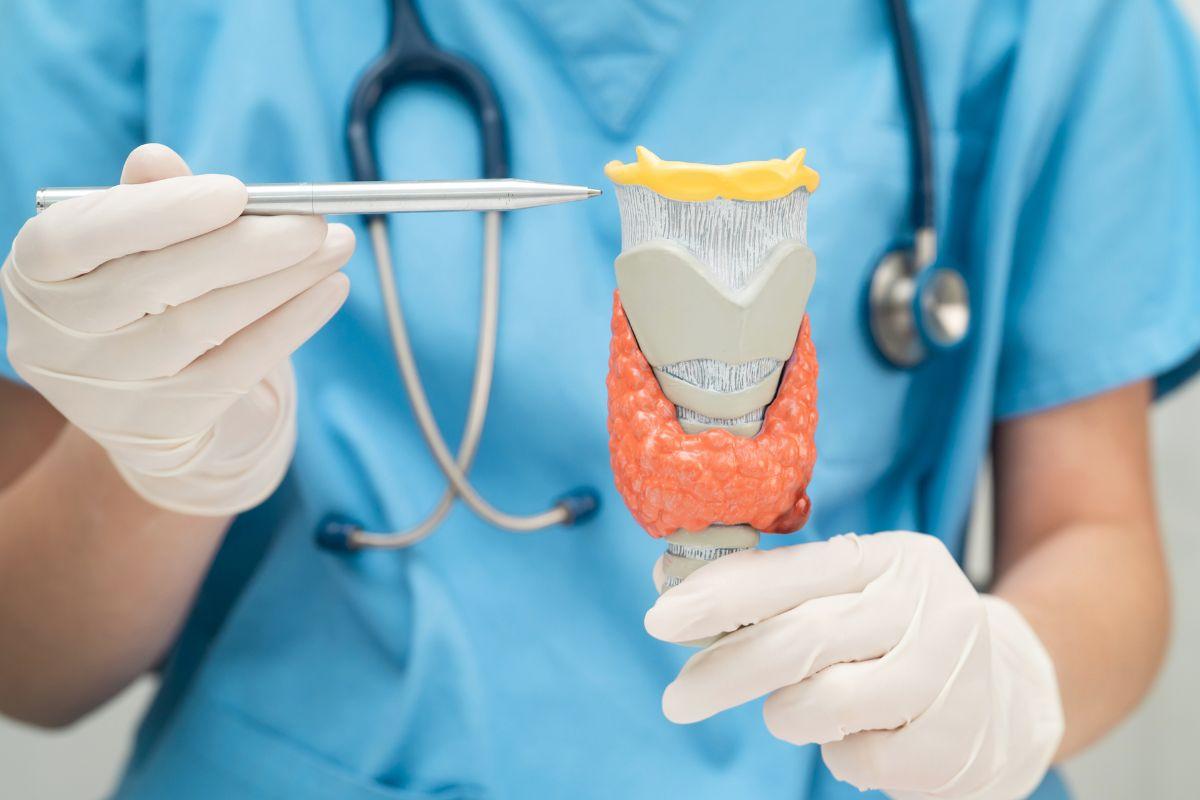Many people experience fatigue, tiredness, weight gain, mood changes, or even anxiety and dismiss them as stress or lifestyle issues. These symptoms can sometimes point to thyroid disorders, which are common and treatable. With proper testing, care, and management by GPs or endocrinologists, your life will go back to normal. Doctify helps patients connect with trusted GPs and endocrinologists for accurate diagnosis and thyroid management.
Understanding the Thyroid Gland
The thyroid is a small, butterfly-shaped gland at the base of the neck just below the voice box. Its role is to produce thyroid hormones (T3 and T4) that regulate metabolism, energy, heart rate, body temperature, weight, and digestion. When hormone levels are off balance, the body’s systems slow down or speed up (depending on the alteration), leading to noticeable symptoms. The thyroid gland can be underactive (producing few hormones) or overactive (producing a lot of hormones).
Common thyroid disorders
The thyroid disorders are diagnosable and manageable with early GP evaluation, these disorders are:
- Hypothyroidism (Underactive thyroid): the gland doesn’t produce enough hormones. The common symptoms include: unexplained weight gain, tiredness, depression, cold intolerance, dry skin, hair loss, sluggish mood, constipation, difficulty concentrating, and irregular menstrual periods for women.
- Hyperthyroidism (Overactive thyroid): the gland produces too many hormones. The frequent symptoms are: unexplained weight loss, nervousness, anxiety, heat intolerance, sweating, tremors, irritability, difficulty sleeping, diarrhea, and rapid heartbeat.
When to consider a thyroid test
Thyroid disorders are more common in women, older adults, and those with autoimmune conditions. Nonetheless, a thyroid function test is recommended if you experience:
- Persistent tiredness or low energy.
- Unexplained weight gain or loss.
- Hair thinning or brittle nails.
- Neck swelling or visible enlargement (goitre).
- Irregular menstrual cycles or fertility challenges.
How thyroid testing works
Thyroid testing is really simple. First, the GPs typically start with a TSH (thyroid-stimulating hormone) test, the result might be high TSH – possible underactive thyroid (hypothyroidism), or low TSH – possible overactive thyroid (hyperthyroidism). If TSH is abnormal, afterwards T4 and T3 assays are ordered to confirm the diagnosis of hypothyroidism or hyperthyroidism. In some cases, antibody tests or imaging (like an ultrasound) are needed to help identify autoimmune or structural causes.
What happens after diagnosis
What will happen after diagnosis will depend of the thyroid disorder, because they are completely different:
- For hypothyroidism: since the gland is producing less hormones than usual, it is usually treated with daily levothyroxine tablets to replace those missing hormones. Regular blood tests would be needed, to ensure dosage is correct.
- For hyperthyroidism: since the gland is producing more hormones than usual, it may be needed anti-thyroid medications, radioactive iodine therapy, or surgery in complex cases. A lifestyle guidance on diet, rest, and stress management is often part of care. As well, regular blood tests for control.
Self-care and lifestyle tips
Below are some tips and recommendations for patients diagnosed with thyroid disorders:
- Maintain a balanced diet with sufficient iodine, selenium, and zinc (consult your GP before taking supplements).
- Regular exercise helps manage metabolism and mood, minimum 150 minutes of exercise per week.
- Get enough sleep (minimum 7-8 hours of sleep) and reduce stress, as both can influence hormone balance.
- Drink a lot of water, minimum 2 liters of water per day.
- Avoid stopping or adjusting medication without medical advice.
When to See a GP or Specialist
Please contact your GP if you experience any of the following:
- A swollen neck or nodules on the neck.
- Unexpected weight change, loss or gain.
- Persistent fatigue, irritability, tiredness, or nervousness.
- Already take thyroid medication and symptoms return.
- Persistent irregular menstrual periods without an explicable cause by the gynaecologist.
- Unexplained hot or cold intolerance.
Early evaluation prevents complications such as heart problems, infertility, or metabolic issues. We invite you to use Doctify to find a verified GP or endocrinologist for thyroid testing and ongoing management.
Conclusion
Moderate tiredness or weight changes are common—but when persistent or unexplained, they can signal a thyroid imbalance. The thyroid gland can be underactive (producing few hormones) or overactive (producing a lot of hormones). A simple blood test can confirm the cause and guide effective treatment. With proper management and support, most people with thyroid disorders live full, healthy lives. Early evaluation prevents complications such as heart problems, infertility, or metabolic issues. We invite you to book a thyroid check-up with a trusted GP or endocrinologist through Doctify for trusted, patient-reviewed care.
Find the right specialist for you. Doctify uses verified reviews so you can make the best decision for your healthcare.

Feel free to consult a GP through Doctify for personalised advice whenever you want, we will be happy to help you! Find the best GPs in the United Kingdom or search for the best specialists globally:
Medically Reviewed
Last reviewed on 10/11/2025




